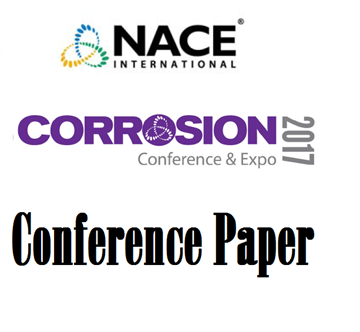Search
Products tagged with 'electrochemical measurement'
View as
Sort by
Display
per page
Effect Of Inhibitor Component On Inhibitor Efficiency - Inhibitor Types And Intensifier-
Product Number:
51322-17791-SG
Publication Date:
2022
$20.00
Influence of Oxygen Diffusion Coefficients and Soil Moisture Content on the Corrosion Behavior of Carbon Steel
Product Number:
MECC23-20174-SG
Publication Date:
2023
$20.00
Methods for Construction of Pitting Engineering Diagrams of Stainless Steels Used for Water Systems
Product Number:
51323-19246-SG
Publication Date:
2023
$20.00
On-Line Real-Time Corrosion Monitoring Techniques Under Co2 - Brine Environment – Comparative Study
Product Number:
51317--9040-SG
ISBN:
9040 2017 CP
Publication Date:
2017
$20.00




